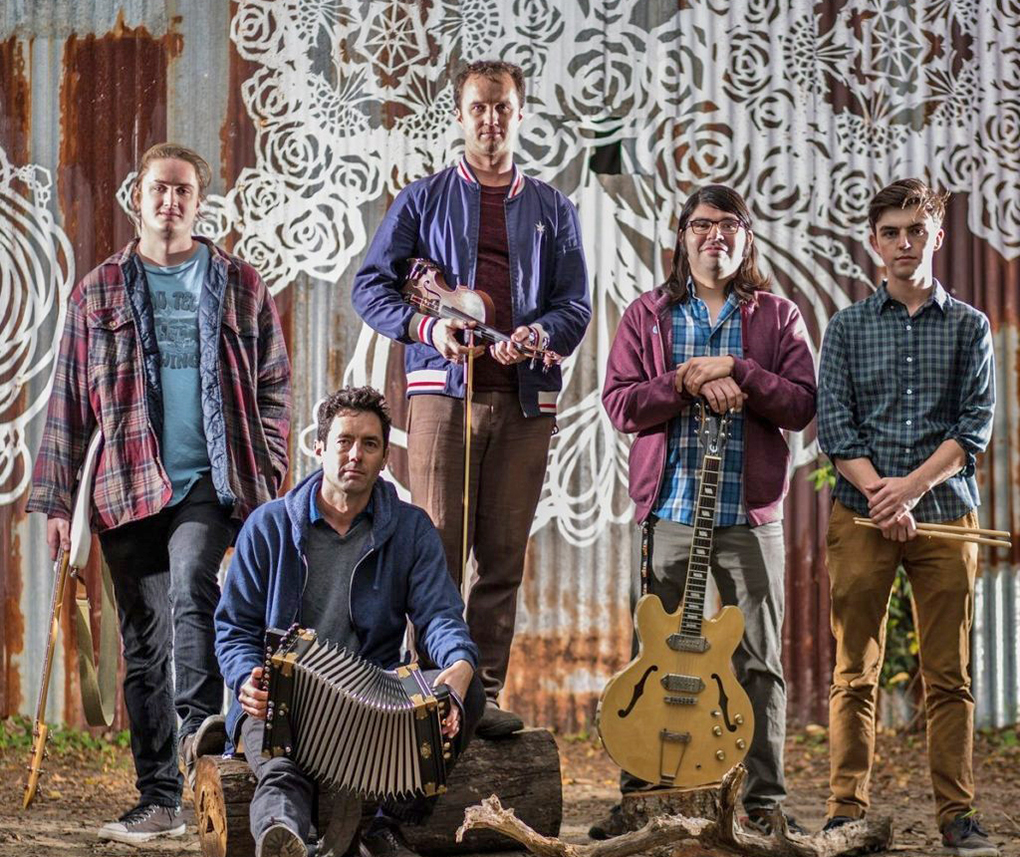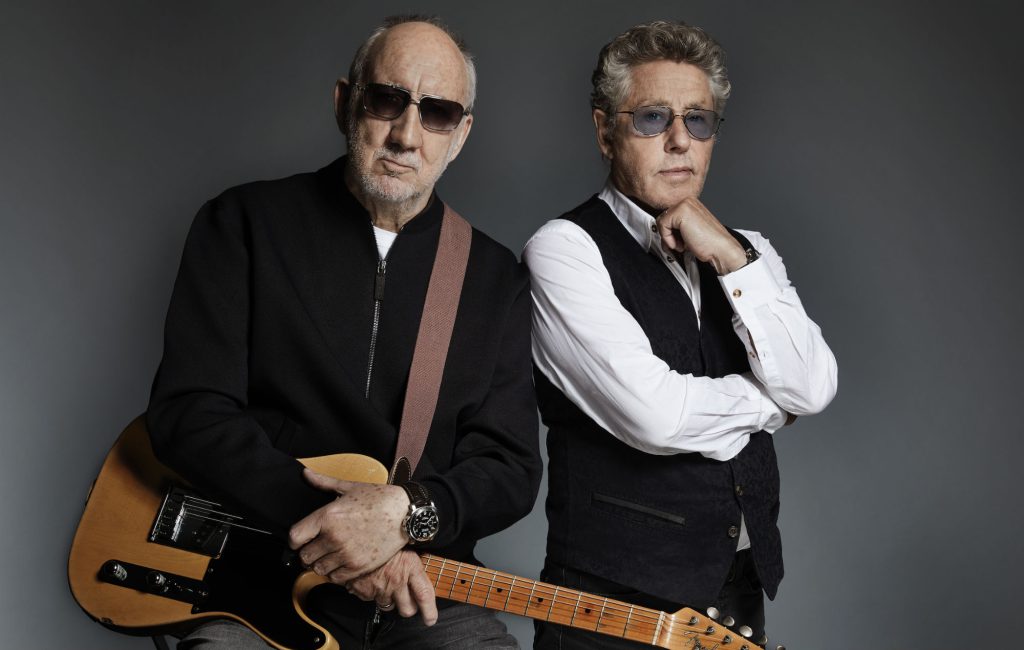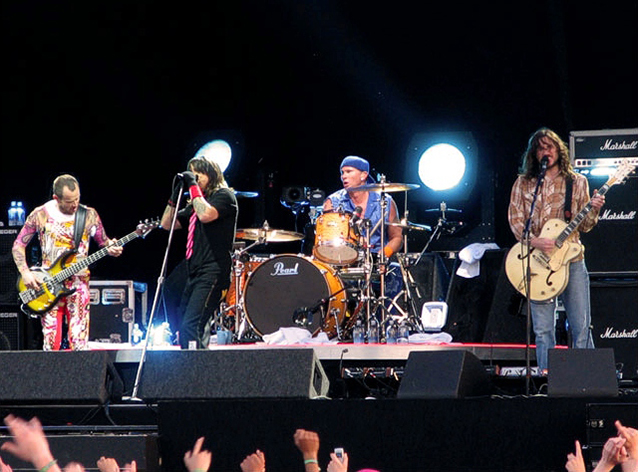
By Simone Goldstone | Soundcheck Columnist
[Editor’s Note: Music writer Simone Goldstone attended the first weekend of the renowned New Orleans Jazz & Heritage Festival April 30 and May 1, which was postponed the last two years due to the pandemic]
Day 1
Accordion hymns skim off the water of Bayou St. John, and confederate jasmine lines the road to the New Orleans fairgrounds. Ancient oaks covered in Spanish moss shade the revelry of the festival, and street parties and jazz bands have taken over the streets.
“All you got to do is have a good time,” my Lyft driver tells me, “Eat, drink, and be happy.”
It’s my first time at Jazz Fest, and I take the advice to heart. Returning after the two-year hiatus, the festival celebrates the unique cultural heritage of Louisiana. It’s a Mecca to musicians who worship the sounds sprung from the swampy earth. This year’s Jazz Fest also carries the collective mourning of Foo Fighters drummer Taylor Hawkins, who passed away in March. Hawkins grew up in Laguna Beach and graduated from Laguna Beach High School in 1990.
Determined to Laissez Le Bon Temps Rouler, I’m drawn first to the Fais-Do-Do Tent. Decorated like an old rustic barn, this is where Zydeco and traditional Cajun music are played. Cajun music is born from the exiled French-Canadians who were forced to settle in the wild lands of Louisiana. Zydeco music, on the other hand, borrows more from Black spiritual call and response and a hand clapping, foot-stomping called Jure. Both styles are transportive, taking you back to a time and place of blooming cannas, steamy heat, and sweet-smelling Praline cracking the air.
Mardi Gras Indians parade through the festival, dying the sky with purple, yellow, and green. Feathered costumes light up the wide grass, a reminder that New Orleans carries some of the richest wealth of heritage we have in America.
Suddenly, a Cajun looking Mac De Marco takes the stage in a white jumpsuit, trucker hat, and a country-style fiddle tucked to his chest. This is Louis Michot, frontman of the Lost Bayou Ramblers.
Gleeful shouts pierce the air, cutting the rising steam of boiling crawfish and honeyed scent of sweet potatoes cookies. High-tempo, life-igniting, unbridled joy-de-vie bursts from the group. The band has won a Grammy for a good reason: the harmony of the Cajun accordion and fiddle, backed by perfect drums and idiosyncratic French Creole lyrics strikes something in the soul akin to freedom, love of the land, and wild, untamable history. I envision old Cajun villages rocked by hurricanes and settlers wandering through the bogs and bald cypress trees. If those exiled arcadians of 1765 could see this now, they’d be gleaming with pride from their stilted porches.
Jumping onto the drum set, the merciful breeze blows Michot’s broken bowstring against the thunderhead-filled sky.
The best surprise of the day is the band’s homage to headliners The Who. The group performs “My Generation” entirely in Creole French. All I can say after their performance is this: spread my ashes in the Mississippi and play the Lost Bayou Ramblers at my funeral.
Soul set on fire, I visit the Blues Tent. The stage is decorated like a southern porch, crowned with photographs of B.B. King, Allan Toussaint, and Stevie Ray Vaughn. A painting of Blind Willie McTell stares down from the platform. A saxophone wails out decades of honed history with enough emotion to bring you to your knees.
Mem Shannon and The Membership howl out songs from their somber musings A Cab Driver’ Blues. Tales of down-and-out street walkers and drunken tourists of the French Quarter inspired the brooding poet, whose deep baritone captivates the audience.
Other highlights of the Blues Tent include Randy Newman bringing the crowd from nostalgia induced tears with his Toy Story soundtrack to hysterics with classics like “Short People.”
Delta Blues guitarist Tab Beniot invoked echoes of Otis Redding; images of banana leaves and winding river docks materializing in our minds.
The music of the American South reached the ports of England, allowing rock bands like The Who to form. Gracing the festival with their legendary presence, Pete Townsend and Roger Daltrey took to the main stage in mod red scarves.

“Who Are You” opened the set, embellished with Townsend’s signature windmill guitar. Taking over for Keith Moon on the drums was Ringo Starr’s son, Zak Starkey. Backed by a full orchestra, the Brits included the audience in “Join Together with the Band,” by holding the microphone over the colossal crowd.
“The last time we sung this song, we forgot the words,” Daltrey joked, before playing “We Won’t Get Fooled Again.” A wistful rendition of “Behind Blue Eyes” was elevated by angelic cello and violin. The classics never lose poignancy with time: “Love Reign Over Me” contained the perfect contrast of dainty wind instruments with Daltrey’s powerhouse howl.
“Pinball Wizard” and “Tommy” were brought to life by the French horns; violins tempering the guitar and drum fills, reaching a crescendo only made possible by Townsend’s fabled talent. The night ended with “Baba O’Reilly.”
“They’re all wasted!” Daltrey roared with enough conviction to send the drunkards of Bourbon Street home.
Day 2
At the Heritage Stage, I’m hypnotized by the brass band paying tribute to Sam Cooke. “I was born by the river…and just like the river I’ve been running ever since.” The scent of chicory and taste of King Cake consecrate the lyrics.
The main course of the festival for me was the Red Hot Chili Peppers. Coordinated in paint-splattered attire, the group cartwheeled and hand-walked onto a stage stacked with walls of amplifiers. Paying homage to Foo Fighters drummer Taylor Hawkins, Chad Smith’s bass drum had Hawkins emblemized in the namesake bird’s silhouette.

Wasting no time, the Peppers started with “Can’t Stop.” Their cadence and musical prowess proved their place among rock royalty, their unique sound of fresh and funky was executed with sheer technical talent.
The L.A. icons ran through all the hits: “Other Side,” “Dani California,” and “Tell Me Baby.” During “Snow,” the largest crowd of the festival echoed a mountain of “hey ooooh” with a camaraderie I hadn’t felt since pre-pandemic. The fun the group had playing together seemed unchanged from the high-school age Angelinos first rocking the scene decades ago.
Kiedis rapped the jaded woes of the Los Angeles with a piercing stare. Flea sported a Lakers bass for the group’s encore, as a heart-tugging rendition of “Under the Bridge” and “By the Way” closed the performance.
The Pepper’s set was heavy with ambivalence: grief for the loss of Hawkins, and amazement for the addictions Kiedis and guitarist John Frusciante were able to overcome. During “Californication,” the words of “And Cobain can you hear the spheres singing songs from Station to Station,” were poignant with emotion. Foo Fighters founder and lead singer Dave Grohl was in the audience, grateful the band could pay tribute to his fallen drummer.
I’d seen Smith and Hawkins play together as recently as October at Eddie Vedder’s Ohana Fest in Dana Point. Their decades long friendship made it only fitting for Smith to take the microphone at the end of the night.
“We love the Foo Fighters, and we love our brother Taylor Hawkins. This means a lot for us to be able to play for them. The guys in the band are here. Taylor’s wife Allison is here, the whole family…it’s a beautiful thing. We love them. We love Taylor. So, on three, I want to hear everybody say, ‘We love Taylor!”
The request held more than homage to Hawkins life, it was also a message to his family that addiction wasn’t a moral failing; that love was stronger than the tragedy. It must have prompted introspection for the Chili Peppers, whose career was defined by addictions that nearly destroyed the band.
As Kiedis sings, “destruction leads to a very rough road, but it also breads creation,” Hopefully the love Jazz Fest created for Hawkins can be remembered by his bandmates and family. Jazz Fest 2022 not only celebrated the legacy of the music of New Orleans, but the legacy of Taylor Hawkins as well.
